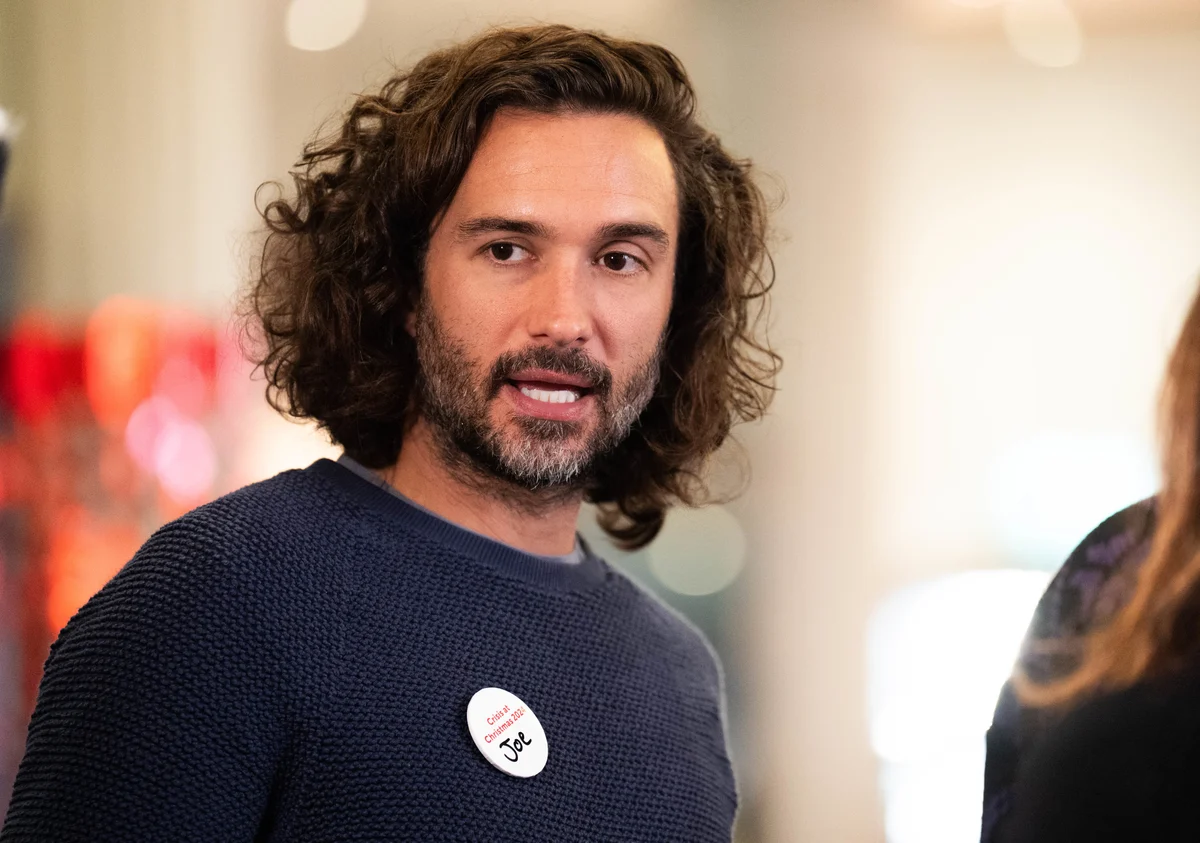By Tim Spector
Copyright standard

I have mixed views on Joe Wicks’ new show.
In it, he and doctor Chris van Tulleken have set out to create an ultra-unhealthy protein bar in an attempt to highlight how lax the laws around creating ultra-processed foods actually are. Fair enough.
It’s fantastic he’s raising awareness and particularly the terrible laws around labelling: most people don’t realize how easy it is to make a really unhealthy bar and have health halos all over it. Under current laws, you can just add a bit of manganese and can suddenly claim that it’s good for your immune health.
That’s what I think he has highlighted really well.
But at the same time, I think it’s caused a little bit of confusion. Joe has clearly gone for the scaremongering approach, but don’t think he’s really offering a practical solution to it.
Obviously the public will react in different ways, but if he says, ‘This bar causes cancer,’ which is apparently linked to the chemical aspartame, well, it will do if you eat it regularly, but it doesn’t mean that eating one bar is going to cause cancer.
I think there’s a bit of a blunderbuss approach to addressing UPFs here. By not really going to the nuance of what processing food actually means, they’re lumping everything together.
Ultra-processed doesn’t automatically mean bad. Take breakfast cereals. If you take the blunderbuss approach that Joe’s show is taking, you’d basically rule them all out.
However, there are ones like Weetabix that are processed, but they’re very low risk, and they’re probably on average going to be good for you. Under this blanket approach, they’ll be labelled the same as, you know, Coco Pops or Honey Crisps, which are about 30 per cent sugar.
The term ‘ultraprocessed’ can also be misleading. In nutrition science, ultra-processing doesn’t really have a definition. It was a term used to do research, and for something to classify as ‘ultraprocessed’ it could incorporate things that most nutritionists would not consider to be harmful, because they have one additive that might be a preservative.
It might be a form of lemon juice or sorbic acid or vitamin C, that would count as an additive and therefore it becomes an ultra-processed food.
In reality, there’s a spectrum around UPFs and calling 60 per cent of the food that we eat and perhaps 70 per cent of what children eat as dangerous is going too far.
I differ with Chris van Tulleken’s view on this. I don’t think all processed food is bad, whereas he would label everything as bad. We’ve done some research showing that only about 25 per cent of the foods that are processed are actually harmful.
You’re scaring people if you say that 60 per cent of all the food they eat is going to kill them. It’s going over the top. I think we need a better system and that’s basically what we’ve done with our Zoe (zoe.com)risk score, which we’re in the process of publishing.
It’s on our app, and it takes these foods and puts them into a series of zero, low, medium and high-risk categories based on more than just the additives. It’s based on the tricks that the food company are trying to use to get us to eat more of whatever they’re selling.
So, yes, the additives, the colorants, the flavourings, the emulsifiers, but also things like hyper-palatability, which gets us to overeat and overrides our normal senses, or the energy density of certain items. Some processed foods certainly have those, but not all. They’re the ones we should be focusing on.
It’s hard to see laws around those changing anytime soon, but in the meantime, we need to give the customer the power to choose the right foods.
If customers are informed, they’ll know what they’ll be putting in their bodies, or even how much they should. Even a high-risk food might not pose a big problem if you just have it once a month, and the rest of your diet is really good.
There’s a consumer power we need to harness here: if people are not choosing unhealthy products, then the supermarkets will stop stocking them. But to do that, you can’t just say no to 60 per cent of food. I think that’s the key here.
That’s why this more subtle interpretation is important. If we banned ultra-processed foods, the country would starve, because we’re not educating people on how to cook either. A lot of people are also dependent on some of these foods at the moment because they’re not taught in school or anywhere else how to actually cook, or they might not have no cooking facilities at home, just a microwave.
Instead, we need to change our environment and encourage government institutions to issue new guidelines, to say ‘This is what you should be stocking,’ in schools, hospitals and universities.
People should be warned about what they’re putting into their bodies. Until that happens, I think we need apps like Zoe to educate people, we need institutions to actually classify the foods and say we’re not allowing this in our canteen or on these premises.
These are the things that we need to be thinking about when we’re assessing these foods. We can’t have too simplistic a view because we’re fighting an industry that’s incredibly clever, and which employs the best scientists in the world. Instead, we need a plan to counteract that.
Joe Wicks: Licensed to Kill is streaming now on Channel 4